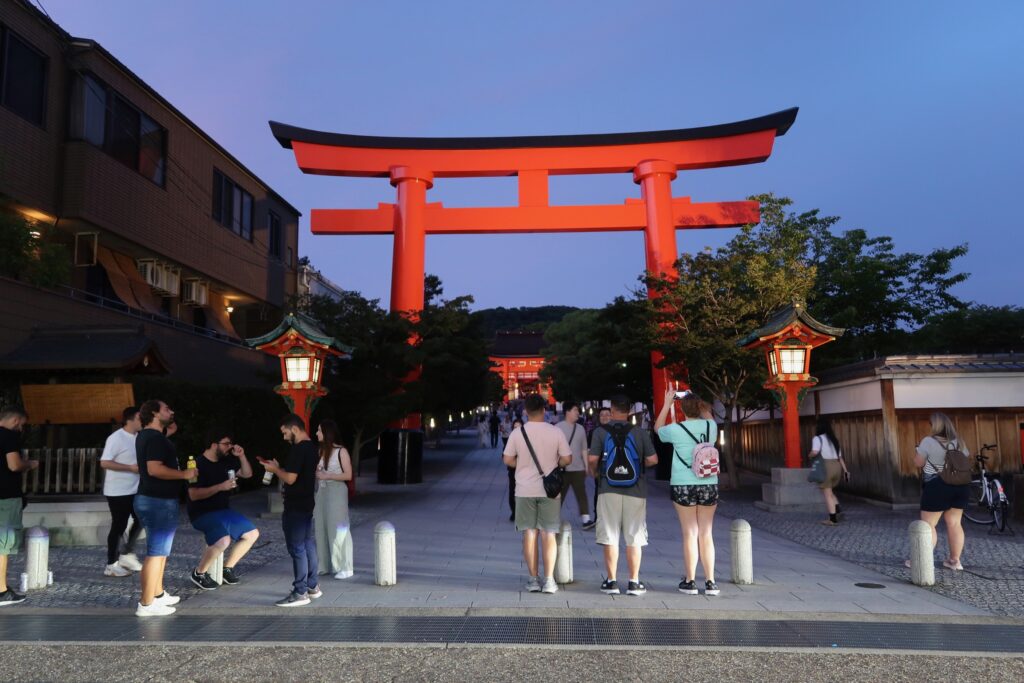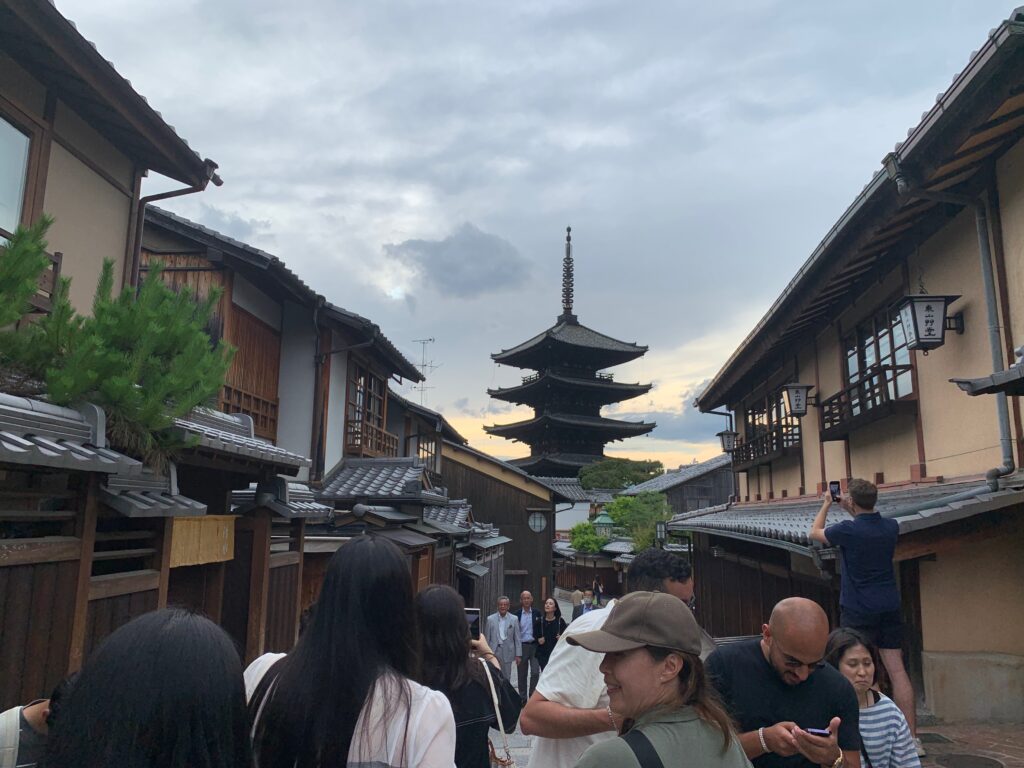Tourists along Yasaka Street in Kyoto’s historic Higashiyama district, with the Yasaka Pagoda, the last remaining structure of the Hokan-ji Temple, in the background. | CDN Digital Photo by Morexette Marie Erram
CEBU CITY, Philippines – Beginning July 1, 2023, all carriers in the Philippines offer flights that connect Cebu directly to Japan, ultimately making the ‘Land of the Rising Sun’ a destination within reach for Cebuanos.
However, Japan still requires Philippine passport holders to obtain a valid visa to gain entry into their country.
There are various types of visas Filipinos can avail when going to Japan but for leisure purposes and vacations, a Temporary Visitor visa is needed. There are multiple sub-categories under the Temporary Visitor visa, like Visiting Relatives, and Business, Conference, Cultural Exchange.
For the purpose of this article, we will be covering tourism only.

Tourists taking snaps around the Tori gate leading to Fushimi Inari Shrine in Kyoto, Japan | CDN Digital Photo by Morexette Marie Erram
The Embassy of Japan in the Philippines does not accept walk-in applications for tourist visas. All applicants must submit their applications via a travel agency. These travel agencies will, in turn, ask for payment in exchange for processing and submitting tourist visa applications to the Embassy.
With that, here are some tips that may guide you in your visa application:
Go to an accredited travel agency
The Embassy of Japan in the Philippines has a list of travel agencies accredited to process and submit applications for tourist visas, whether they are for single entry or multiple entry. The list can be found on this link.
Print all documents in A4
Application forms, Schedules of Itineraries, Letters of Guarantee, and photocopies of required documents like bank certificates should be in A4 size. It is also highly recommended to print a certified copy of your Income Tax Return (ITR), one of the requirements needed for a tourist visa application, on an A4 size paper.
However, there are government-issued papers like birth certificates and sometimes, bank certificates, printed in legal or letter sizes. Fortunately, these are acceptable.
PSA-issued birth certificate or marriage certificate is a must for first-time applicants
For first-time applicants, the Embassy of Japan in the Philippines requires them to furnish a certified true copy of their birth certificate, or marriage certificate for married couple, issued by the Philippine Statistics Authority (PSA), within one year of filing the application. Travelers may also ask any accredited agencies for what to do in case they don’t have any records from the PSA.
Know the requirements between single-entry and multiple-entry visas
As their classifications suggest, single-entry and multiple-entry visas entitle their holders to single and multiple entries to Japan, respectively. If you’re planning to apply for a multiple-entry visa, the Embassy of Japan in the Philippines may ask for more documents and other ‘proof of rootedness’. You can consult any accredited travel agency for more suggestions.
Do not lie. Ensure the details you submit are accurate, factual, and match with each other.
Before submitting your documents and application, always double-check if the details you entered match with the rest. For example, the address of your employer or company found on your certificate of employment (COE) should also reflect on your Application Form.
In addition, travelers must not place and submit any misleading or false information on their application. Otherwise, they’ll risk getting flagged, their applications rejected, or may even face consequences from the law.
Allocate ample time for your application
And last but not least, set aside time to process your application – from gathering all documents required to reviewing them.
For tourist visas, the Japanese government usually grants a three-month validity for single-entry visas. This means you need to submit your application at least one month before your intended travel dates.
View of Mt. Fuji from the Arakurayama Sengen Park during summer
/bmjo
RELATED STORIES
How to increase chances for a successful US visa application
Palace welcomes South Korea’s move to relax visa application for Filipinos


